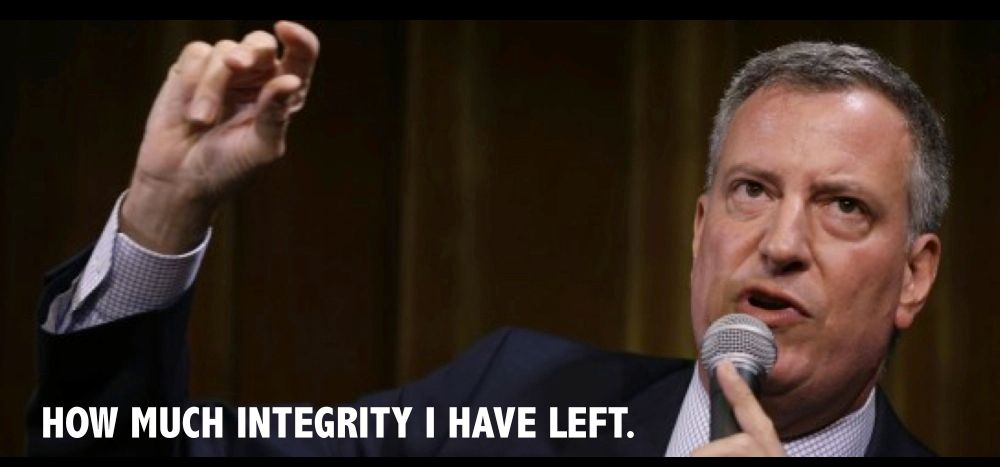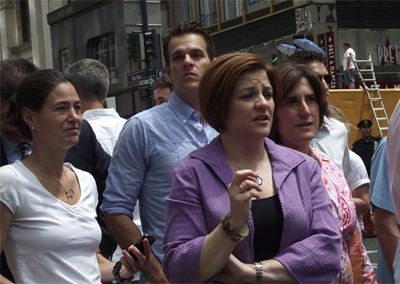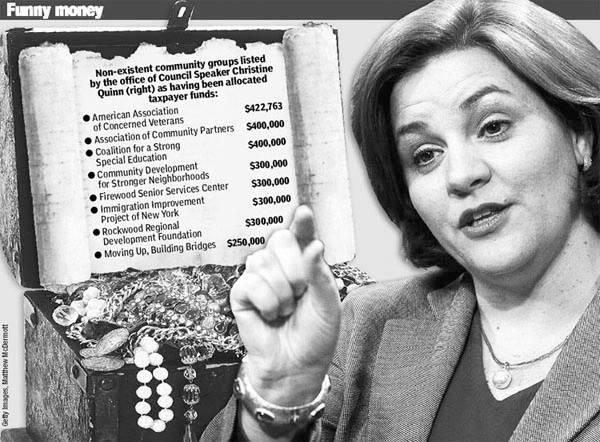Bill de Blasio and Land Use : Liberal Mayoral Candidate Would Continue Many of Bloomberg's -- and Quinn's -- Policies
In the weeks leading up to Christine Quinn's defeat in the Democratic primary election, it came to be known that one of the slimy Rudin lobbyists responsible for influencing the City Council to approve the controversial St. Vincent's luxury condo conversion plan had already found a way to get access to Bill de Blasio, the presumptive leading mayoral candidate. Hosted on Scribd is an e-mail about the controversial lobbyist, James Capalino, that was exchanged between Donny Moss and I.
After a couple of weeks of careful consideration, I have produced a new YouTube video about this e-mail exchange.
One major reason that activists organised to vote Quinn out of office was because of how she sold out the community in favor of her campaign contributors and powerful big business interests. Real estate developers have enjoyed great influence over city government, so much so that voters have had almost no way of participating in important community decisions. For example, voters desired saving the zoning on the St. Vincent's campus for a replacement hospital, but big business interests were able to ride roughshod over voters because of their use of lobbyists and the outsized influence of campaign donations.
After the primary election, Bill de Blasio announced that he would not appear at fundraisers unless contributors could package together donations of at least $75,000. In addition to embracing lobbyists that helped Rudin privatise the former real estate of St. Vincent's, de Blasio was now embracing the out-sized influence of money in politics.
How could it be that activists, who carried the reform banner to organize and defeat Quinn in the mayoral primary, now turn the other way after de Blasio has now begun to adopt some the same tools of the broken political system as did Quinn ?
The concerns over who gets access to political candidates are serious. As some of you may know, when Andrew Cuomo was running for governor, some St. Vincent's activists approached his campaign people over the need for a hospital to replace St. Vincent's. Cuomo's campaign people told the St. Vincent's activists, "We'll see you after the election." After the election, what did Gov. Cuomo do ? Within days, he formed the Medicaid Redesign Team to continue the work of closing hospitals, and he appointed Stephen Berger to head the Brooklyn Working Group in an attempt to specifically close hospitals in Brooklyn. Similarly, some AIDS activists tried to reach out to the de Blasio campaign this year to determine if his campaign platform would include more ambitious goals to confront HIV/AIDS, but the AIDS activists were told by de Blasio's campaign people, "We'll see you after the election."
After all the community organizing, town halls, and protests in which activists have engaged to fight for a hospital to save St. Vincent's, just hearing the phrase, "We'll see you after the election," should activate a powerful recognition : that de Blasio means to make no public commitment to champion for the reforms that that many communities say they want to see brought about in the next mayoral administration.
Some activists, who participated in the movement to vote Quinn out of office, have been doing this work for over 22 years -- from the time when Quinn first arrived in the political scene in New York. It becomes too late to try to hold a politician accountable once the politician gets elected into office. Using Quinn as an example, she will have spent about 15 years in City Council spread out over 5 terms in office. During this time, in what direction has this city headed ? There was no way to hold her accountable during these 15 years, except to finally vote her out of office. That's the only way.
As challenging as it was to vote Quinn out of office, what lesson should we be drawing from this experience ? What wisdom is there to be had ? The reality is that Quinn was just a symptom of a broken political system. The root causes of the political system being broken still exist. In the last two years, our activism was influenced by important principles from the Occupy movement, and that is that inequality, corruption, and the undue influence of big business interests is what keeps our government broken and non-responsive to voters' needs. Knowing all that we know, do we wait for politicians to max out on term limits before they should be held accountable to voters, or should politicians be held accountable even before they win an election and are sworn into office ?
It all comes down to what you think, because it was you, who was made voiceless under the Bloomberg-Quinn administration. Our immediate contribution to push back against the broken political system was to vote Quinn out of office, but based on the messages that de Blasio is telegraphing to the community, voting Quinn out is not enough to bring about reforms. Now that she will soon be gone, what else do you need to do to reclaim your government ?
Please think about this, because the movement to bring about reforms is not over, yet. The movement needs you to step forward, because not everybody is fighting for reforms, and compromises are being made that may not serve your best interests. The only way for you to make sure that your best interests are being served is for you to step up and speak out. Your voice and opinion counts. Make it be heard.
2013-09-23 Rudin Management Company - James Capalino NYC Lobbyist & Client Search Result



